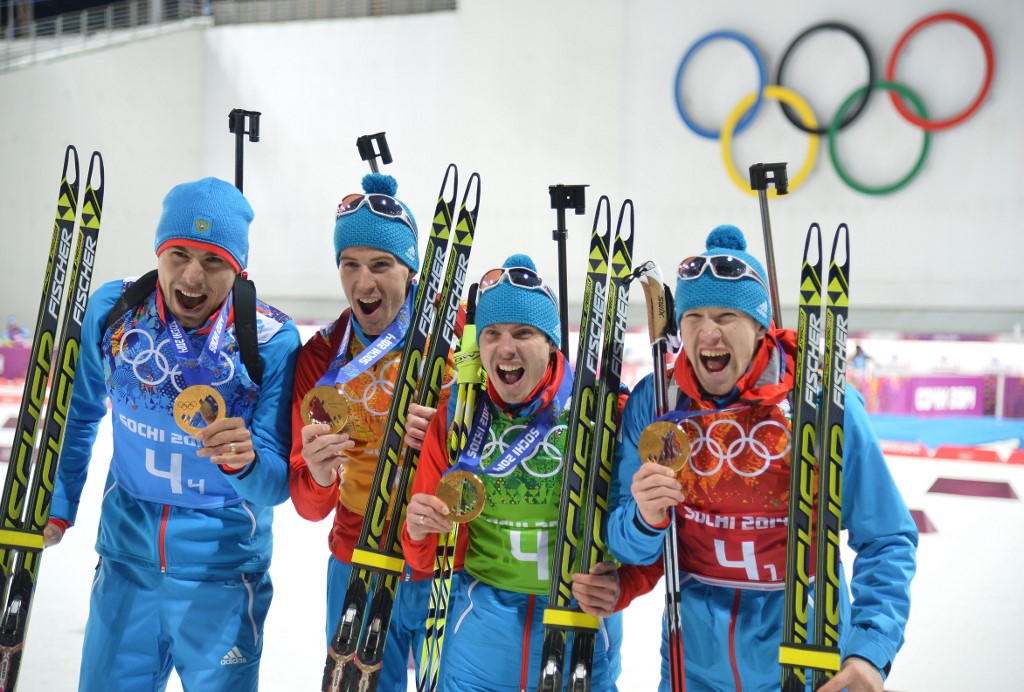
From left : Gold medalists Russia’s Anton Shipulin, Dmitry Malyshko, Evgeny Ustyugov and Russia’s Alexey Volkov celebrate at the podium in the Men’s Biathlon 4×7.5 km Relay Medal Ceremony at the Laura Cross-Country and Biathlon Center during the Sochi Winter Olympics on February 22, 2014, in Rosa Khutor, in Sochi. AFP PHOTO / ALBERTO PIZZOLI (Photo by ALBERTO PIZZOLI / AFP)
SALZBURG, Austria — Russia is set to lose a biathlon gold medal from the 2014 Sochi Winter Olympics in a new doping case.
The International Biathlon Union on Saturday issued a two-year ban for Evgeny Ustyugov, who was part of the gold medal-winning men’s relay team six years ago, citing evidence he used the banned steroid oxandrolone around the time of the Olympics.
His results from the 2013-14 season have been disqualified, including the Olympic victory.
When confirmed by the International Olympic Committee, that will knock Russia off top spot in the Sochi medal table in terms of golds. The host nation would have 10 golds, against 11 for Norway, and 28 total medals, the joint-most along with the United States.
The Salzburg-based IBU also announced a similar two-year sanction for Svetlana Sleptsova, a Russian who didn’t win any medals at Sochi, over the banned substance ostarine.
The cases are based on disputed data from the Moscow anti-doping laboratory.
The computer files were obtained last year by the World Anti-Doping Agency, which has since said it considers some of the data to have been tampered with to cover up doping. WADA has banned Russia’s name and flag from the 2020 Olympics as a consequence.
A WADA panel said in November that attempts were made to delete files in two biathlon cases whose details appear to match those of Ustyugov and Sleptsova, but that computer experts recovered the files.
Any appeal by Ustyugov is likely to focus on whether the data can be considered reliable evidence. Even if he wins an appeal to the Court of Arbitration for Sport, he could still face a ban in a separate doping case.
The Biathlon Integrity Unit, a new anti-doping arm of the IBU, said Thursday it charged Ustyugov with a doping violation based on unusual data in blood samples he gave between Jan. 2010 and Feb. 2014. That could potentially threaten his gold medal in mass start and relay bronze from the 2010 Olympics in Vancouver.
The IOC and WADA didn’t immediately respond to requests for comment.

